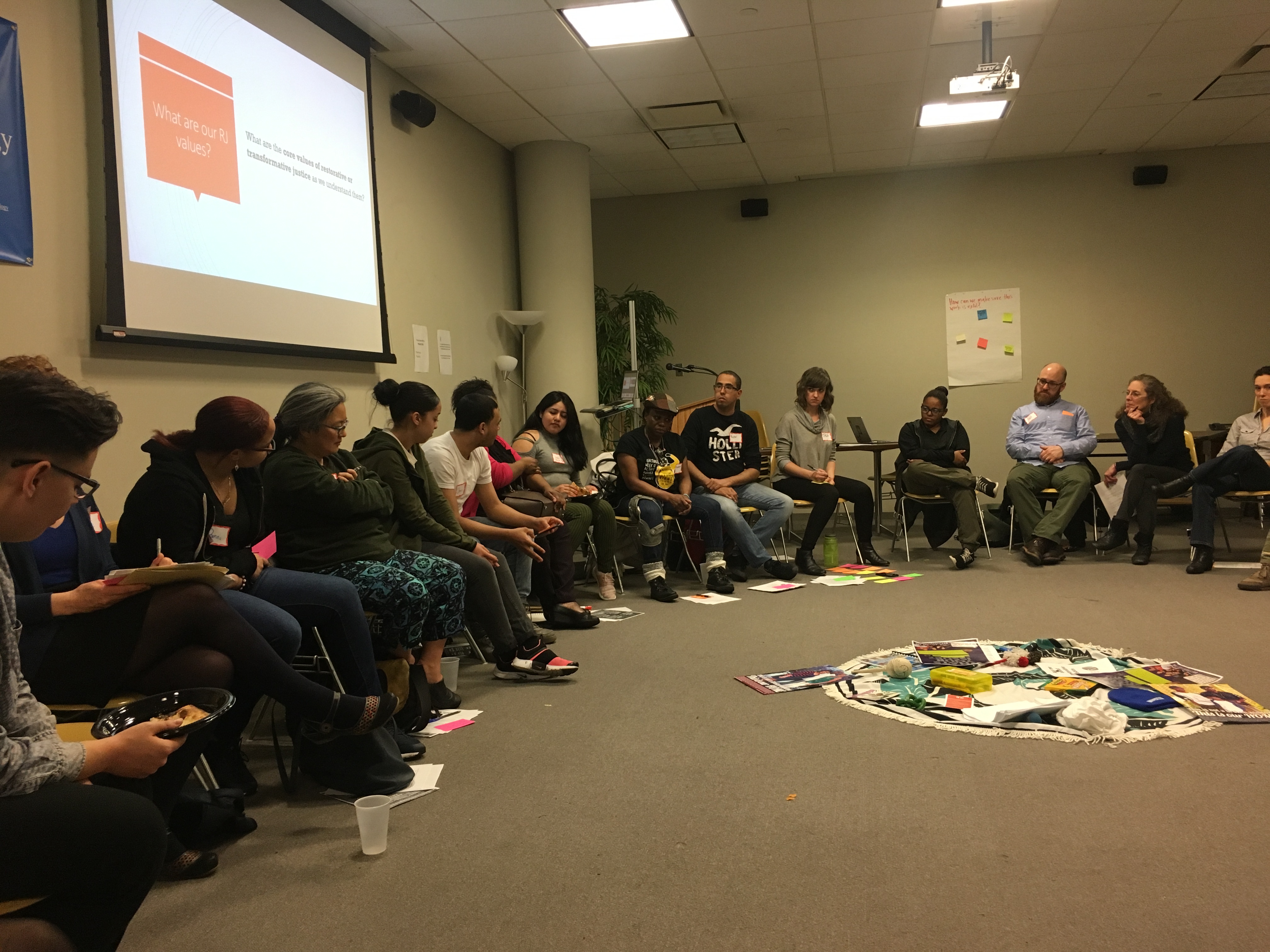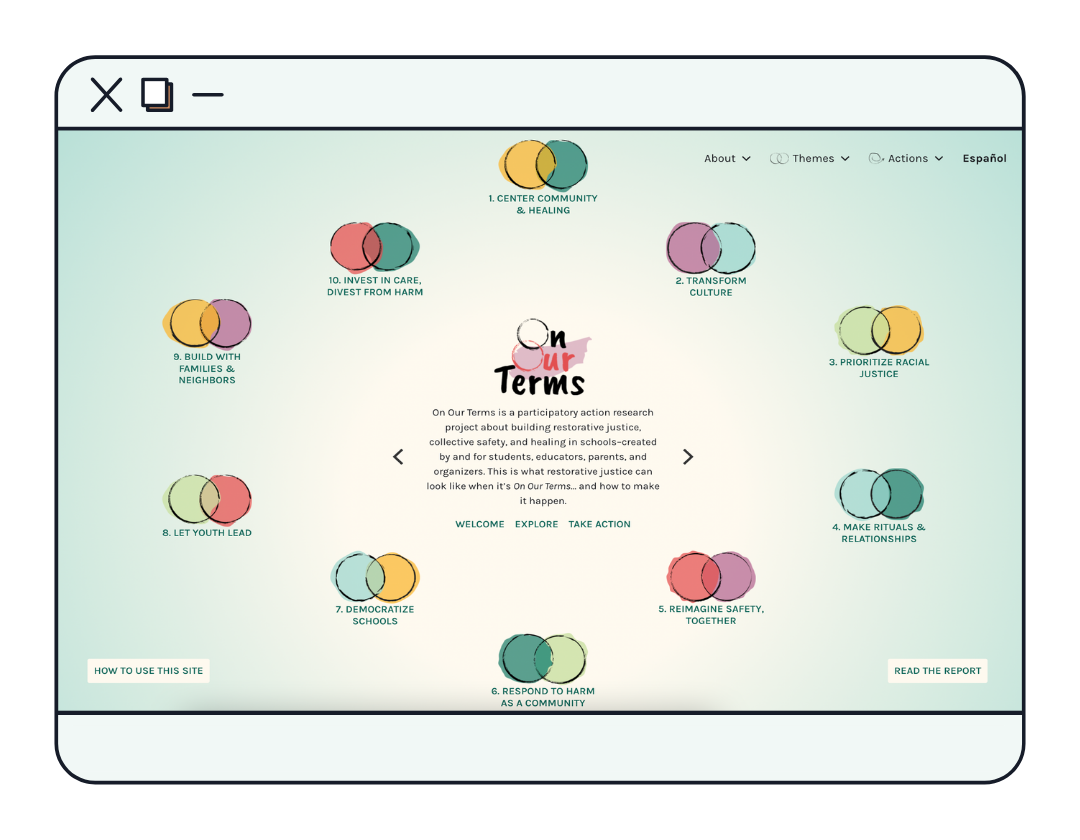

On Our Terms
Visit the dedicated website at onourterms.nyc.
OUR PROCESS
- PHASE 1: PROJECT PLANNING
Our PARticipants want to make a meaningful place at the “policy table” for students, teachers, and families while providing educators, advocates, and policymakers with tools for rethinking our school safety goals, who is included, and how we get there. - PHASE 2: SUMMER INSTITUTE
Over the six days of our institute, we drafted, revised, and tested over 200 interview questions about restorative/transformative justice, safety, accountability, discipline, and intersectionality. Our 30+ researchers unpacked the history of criminalization in schools and the legacies of communities rising up against it. Mainly young people, along with educators, and parents also engaged with guest speakers who do Restorative Justice work in prisons and shelters for women fleeing intimate partner violence. - PHASE 3: RESEARCH DESIGN & PREP
We finalized research questions and focus group questions, trained on facilitation, research ethics, and data analysis. - PHASE 4: FOCUS GROUPS
Researchers talked to students, teachers, parents about safety, accountability, and restorative justice. - PHASE 5: MAKING SENSE OF IT
Researchers analyzed focus group responses to identify important trends, established recommendations. - PHASE 6: GETTING IT OUT THERE
The website is live, including new tools, reports, recordings, and more. Findings are available for multiple audiences about what we learned, why it matters, and what action to take.


